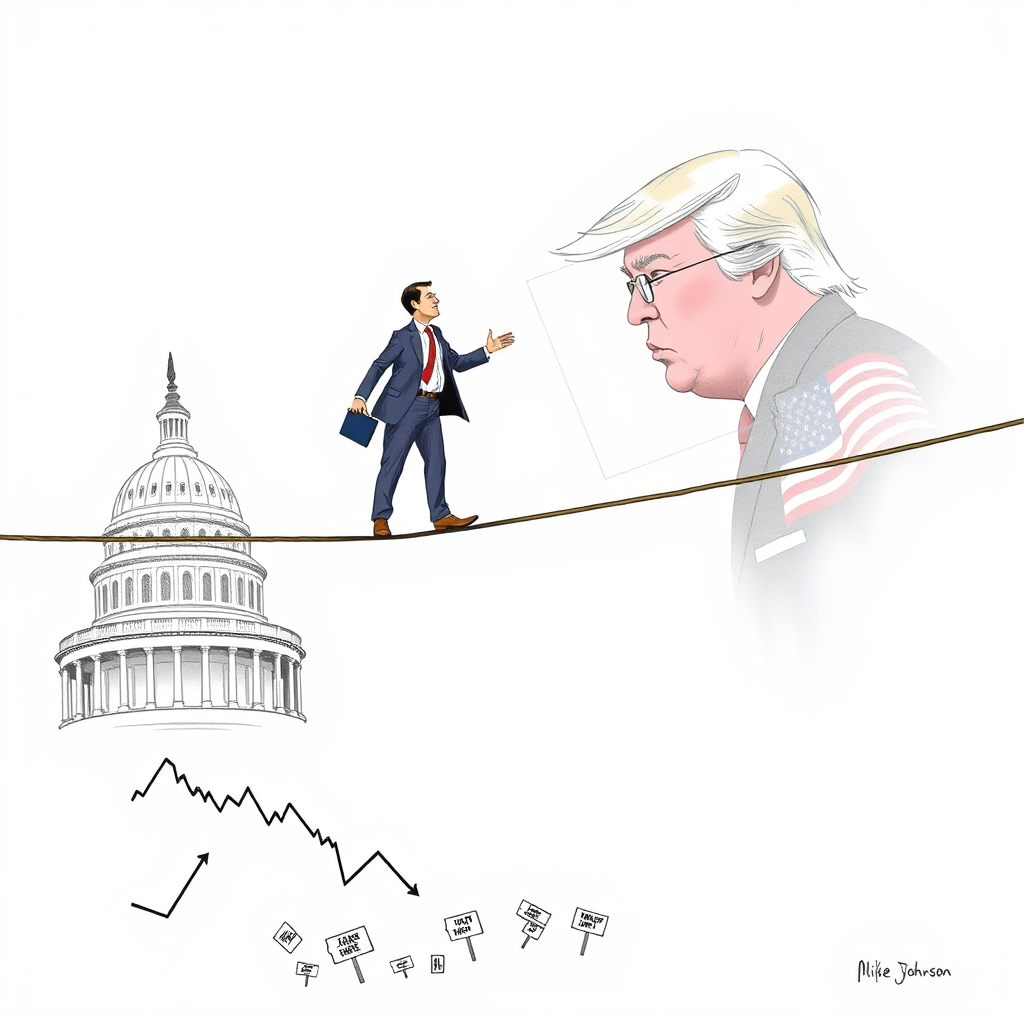Johnson Signals Congress Could Curb Trump's Power

House Speaker Mike Johnson indicated Congress might intervene in trade policy should an imbalance of power emerge between the legislative and executive branches, specifically regarding the implementation of tariffs by the Trump administration. Johnson made these remarks at an Axios event in Washington D.C., acknowledging the President’s broad authority on trade matters but suggesting a potential congressional check if that authority is perceived as exceeding reasonable bounds.
While stopping short of immediate action, Johnson signaled he wouldn’t hesitate to engage directly with President Trump to voice concerns should tariffs prove economically damaging. He currently believes the new tariff policy is still in its early stages – just three weeks in, according to his assessment – and premature congressional intervention would be inappropriate. He expressed optimism that the policy will ultimately benefit the U.S. economy.
However, Johnson has simultaneously taken steps to shield Trump’s tariffs from congressional challenges. Despite support within the Republican party for legislation to repeal the tariffs, he has initiated a procedural maneuver to effectively block any such efforts.
This stance arrives amidst economic anxieties. The Dow Jones Industrial Average experienced a significant drop of 500 points, or 1.25%, Wednesday morning following reports of a weakening economy. President Trump responded by distancing himself from the market downturn, attributing it to the previous administration and predicting an economic boom fueled by the tariffs and a return of companies to the U.S. He dismissed any connection between the tariffs and the market’s performance, claiming the current economic situation stems from inherited “bad numbers.”
Johnson’s position is a delicate balancing act. He appears to be attempting to support the President’s agenda while simultaneously preserving a theoretical congressional oversight role. This approach, however, seems to prioritize political alignment over immediate economic concerns, potentially shielding a potentially harmful policy from necessary scrutiny. The Speaker’s procedural move to block repeal efforts suggests a pre-determined outcome, raising questions about the true extent of congressional independence in this matter. It remains to be seen whether Johnson will genuinely act as a check on executive power, or simply offer rhetorical support while enabling the administration’s trade policies.